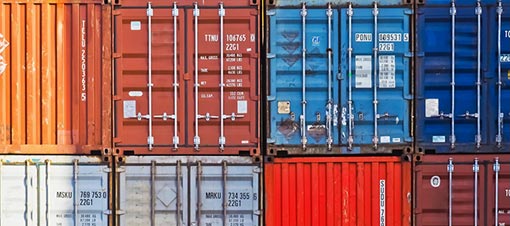News
NEWS CENTER
Promote high-quality development of cross-border logistics from three aspects
 Release time : 2025-09-01
Release time : 2025-09-01  page views : 105
page views : 105 Recently, the "2024 China Export Cross border E-commerce Development Trend White Paper" released at the China (Guangzhou) Cross border E-commerce Trade Fair clearly stated that China's export cross-border e-commerce has entered a new stage of high-quality "going global". According to preliminary estimates by customs, in the first half of 2024, China's cross-border e-commerce imports and exports reached 1.22 trillion yuan, a year-on-year increase of 10.5%. From 1.06 trillion yuan in 2018 to 2.38 trillion yuan in 2023, China's cross-border e-commerce imports and exports have increased by 1.2 times over the past five years.
The success of cross-border e-commerce not only depends on market and product selection, but logistics is also a crucial aspect. The author believes that further strengthening the cross-border transportation capacity of China's logistics industry and promoting the development of cross-border e-commerce can be approached from the following three aspects.
One is to strengthen the construction of overseas logistics infrastructure, promote the construction of international channel networks, and build a large international and domestic logistics channel. Cross border logistics requires crossing international borders, which can lead to longer delivery times. If delivery is delayed, it may reduce consumer satisfaction. Therefore, establishing an overseas warehouse is an essential step.
At present, China still has shortcomings such as a small number of overseas warehouses, uneven geographical distribution, and the need to improve operational efficiency, which requires accelerating the construction of overseas warehouses. However, given the huge cost of building overseas warehouses, logistics companies need to act within their capabilities. In the case of insufficient funds, they can consider adopting cooperative or rental sharing methods.
Secondly, strengthen the construction of smart logistics. Cross border e-commerce logistics costs are relatively high, including international transportation, customs clearance fees, and final delivery. Meanwhile, consumers often desire real-time tracking of orders, but the traceability of cross-border logistics is often poor. These issues not only constrain the development of cross-border logistics, but also impose a heavy burden on related enterprises.
In this context, logistics enterprises in China can accelerate the development of smart logistics, actively apply modern information technology and intelligent equipment, and improve the level of logistics automation, unmanned and intelligent. On the one hand, through technologies such as big data and cloud computing, scattered logistics information can be integrated to achieve precise matching between supply and demand; On the other hand, technologies such as the Internet of Things and artificial intelligence can be utilized to monitor and schedule logistics transportation processes in real-time, improve logistics efficiency and user experience, and reduce logistics costs.
Thirdly, we will strengthen the construction of the international supply chain logistics ecosystem and enhance the global resource allocation capability.
The development of China's logistics industry started relatively late, with most logistics enterprises having single functions, generally small business scales, and low levels of integration and comprehensiveness. They rarely provide logistics planning, organization, and in-depth management of the entire supply chain process in the production field of enterprises. In this regard, logistics enterprises in China can provide quality management, traceability services, financial services and other expansion services for upstream and downstream enterprises in the industrial chain, strengthen collaborative cooperation with upstream and downstream enterprises in the industrial chain, connect upstream raw material and downstream finished product industries, and form a complete upstream and downstream industrial chain ecosystem.
In short, China's logistics industry should accelerate the construction of an open and shared international logistics supply chain system that covers the world, is safe and reliable, and has strong guarantees, ensuring the efficient and smooth flow of import and export goods, and helping domestic cross-border e-commerce to "go global" with high quality.




 8618366223659
8618366223659